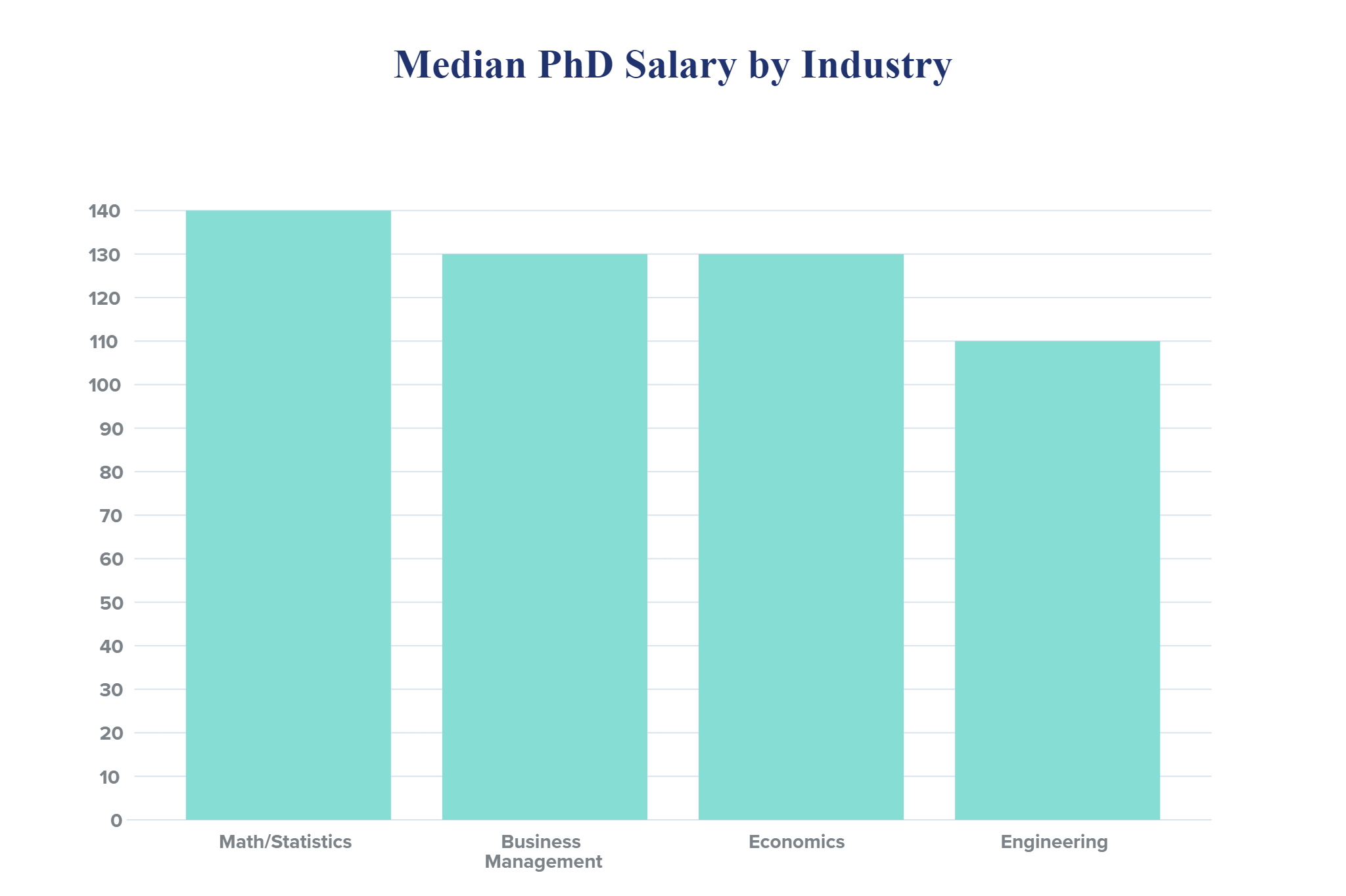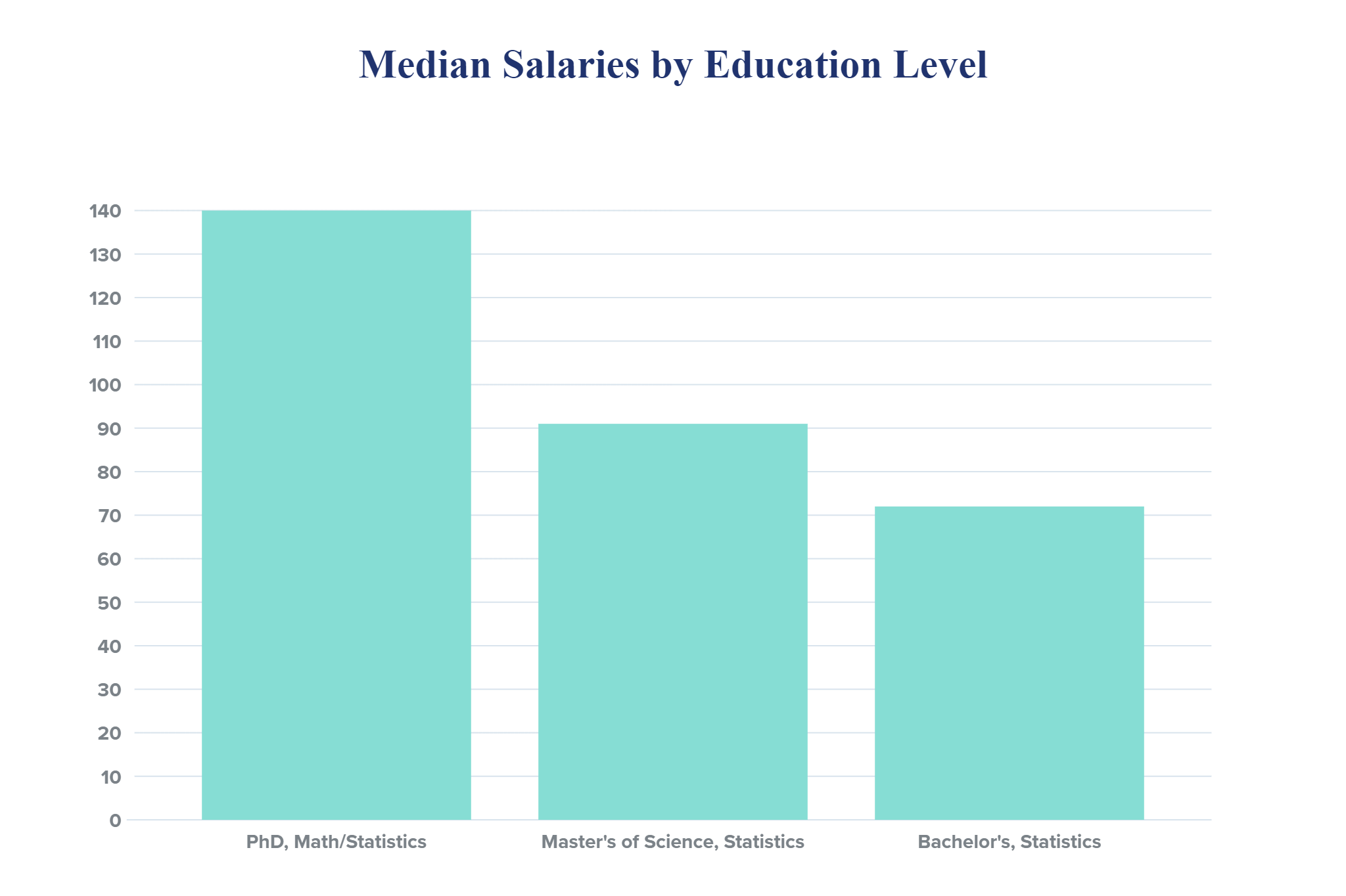Is a PhD in Statistics Worth It?
Overview
At face value, a statistics PhD seems like a sound career investment, the ticket to higher paying jobs and career growth.
It’s no surprise, then, that one of the most common questions we hear is: Are statistics PhD programs worth it for data science jobs?
If we’re just looking at PhD in statistics salaries, sure, from a purely financial perspective, a PhD might be a good investment in your data science career. There’s a strong financial case you can make for earning one.
But beyond the great statistics PhD salary data, there are many other variables that make the answer a little less clear. When you think about the time commitment - almost 8 years - and the average salaries between master’s and PhD students in statistics, you’ll see that there are a number of trade-offs and that the bump in earnings isn’t so significant as to be a no-brainer.
That’s not to say there aren’t tons of great benefits of a PhD, because there are. For one, a PhD provides much more specialized knowledge, which can help you land competitive, more senior-level jobs. (It’s a preferred qualification for many Google jobs, in fact.) And of course, the average starting salaries for statistics PhDs are very enticing.
To help answer the question, “Is a PhD worth it?” we took a closer look at salaries for data scientists and statistics PhDs, as well as some of the pros and cons of pursuing a PhD for your data science career.
PhD In Stats: Salary Comparison
It’s probably not all that surprising that a PhD can increase your earnings, often by 2X or 3X. That’s really across the board, in all industries. For example, according to the Bureau of Labor Statistics, median weekly pay for a PhD ($1,885) was 45% higher than bachelor’s ($1,305) in 2020.
When you take a closer look at PhDs by field, though, PhDs in math and statistics have some of the best starting salaries in any industry. According to 2019 Survey of Doctorate Recipients data, recipients of a PhD in statistics have an average median starting salary of $140,000 (when pursuing a job in industry). That’s better than business administration, economics, and engineering:

A PhD also results in a pretty big bump in salary compared to just earning a bachelor’s or master’s degree. For instance, median salaries for statistics PhD are two times that of bachelor’s recipients and 1.5 times that of master’s of statistics recipients:

In other words, if you’re looking at the question through a purely financial lens, yes, a PhD in statistics is worth it.
But there’s one caveat. The lifetime earnings of a PhD vs a master’s recipient in statistics isn’t all too significant (on average about $3.6 million vs $3.45 million).
PhD in Stats: The Skills Bump
A big reason why starting salaries are so good for statistics PhDs is that your knowledge will be much more specialized.
Master’s in statistics programs tend to provide broad knowledge in the field. You’ll get a strong foundation of the fundamentals, and become well-versed in many different statistical concepts and methodologies. But you likely won’t get the depth of knowledge that you would from a PhD program.
A PhD differs quite a bit, and these programs are built around research. Here’s how it usually works: After completing initial coursework (usually 2 years), you’ll choose an area to focus your research. And then, you’ll spend 3-5 years researching that topic and preparing a dissertation on it.
The difference in focus, therefore, provides you with very specialized knowledge, and that’s a big reason why starting PhD salaries tend to be so high.
Is It Worth It? Delayed Earnings and Career Goals
Of course, the biggest trade-off in getting all this knowledge is the time commitment. PhD candidates in statistics spend nearly a decade – 7.75 years on average – earning the credential.
And that commitment is something you have to consider to really know if it’s worth it to you. Do you want to make this time commitment and spend the next 8 years researching a topic?
As a master’s recipient, you’ll gain a lot of useful professional skills and can jump right into a career. Sure, you might fully understand advanced statistical methodologies, but you will have a strong grasp of the fundamentals. And you can learn a lot to advance your career with professional development and on-the-job training.
Although they spend a lot of time researching a topic, PhDs do have one advantage: They’re often qualified for more senior-level data science jobs. At Google, for example, a PhD is a preferred qualification for many of their data science jobs, and that’s increasingly true for many FAANG companies.
A PhD Is a Good Investment, But With One Caveat
There’s a lot of reasons why you might consider a PhD in statistics. Salaries, for one, are some of the highest in data science, and job growth for statisticians is about 30% year-over-year. You’ll also have a lot of specialized knowledge that will increase your worth and prepare you for senior-level positions.
But here’s the caveat:
Even if you earn a PhD, you’ll still have a skills gaps that you need to fill, especially if you’re interested in a career in data science. There will skills - like coding or machine learning - that you might need to brush up on.
So if you’re expecting that a PhD is a ticket to a FAANG job, it’s not. But the specialized knowledge that it brings is, increasingly, a preferred qualification.
Conclusion
If you want to read more topics that are similar to this one, consider reading more through our blog where we dive into topics such as our PostgreSQL Interview Questions Guide, Machine Learning Case Studies, and even this article on ‘Is Data Science a Good Career?’. We also have an article on career progression for data analysts!
Learn and grow more by using resources here at Interview Query!

